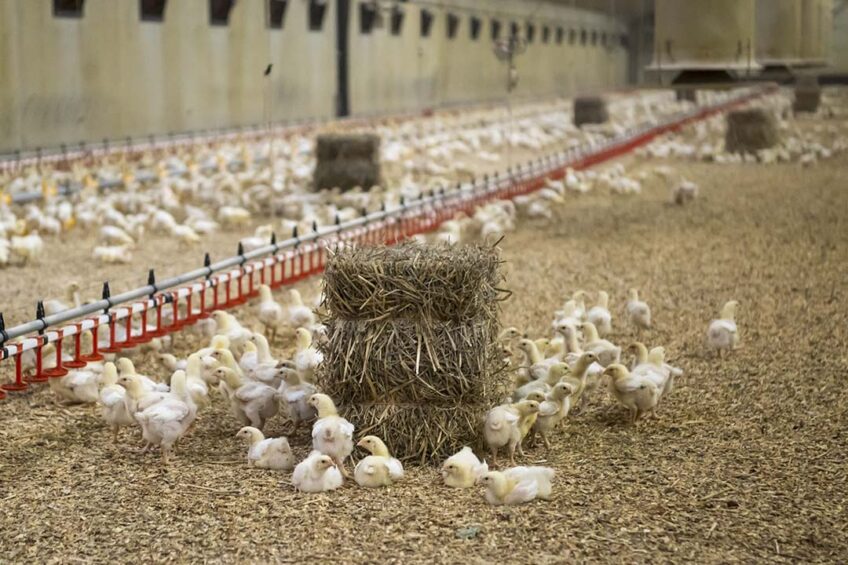Learnings in welfare from Scandinavian broiler farmers

Huge differences in attitudes towards bird welfare can be seen across northern Europe, but UK producers and farm assurance companies could learn some useful tips from Scandinavian producers.
Kieron Daniels, Aviagen broiler technical services manager, looks after 8 countries across northern Europe and sees a diverse range of farms and customers. “In Finland we have a number of small family farms… while in Estonia they have different perspectives with birds kept in big Soviet-style compounds and welfare is not such an issue.”
Insulation
Speaking to the South West Chicken Association conference near Bristol, Daniels said one of the largest differences between UK and Scandinavian broiler farms was the larger levels of seasonality found in the UK in spite of the lower temperature extremes.
Daniels believes this is partly due to the Scandinavians being very good at insulating their houses, which have a lot of heat, but believes there could be other factors to consider when viewing lower reject levels and mortality rates.
Environmental enrichment, windows
He feels the rise in assurance scheme demands for environmental enrichment for broilers in the UK, including straw bales, perches and pecking objects, may not be as beneficial as the enrichments in Norway, where platforms are much more common and there is a tendency to enable birds to enjoy dust-baths in materials entirely separate from the litter.
Similarly, there isn’t the same pressure over the adoption of windows in Norway as there is in the UK with perhaps more concentration in Scandinavia on the prevalence of UV lighting. Daniels believes the desire for natural light, especially if the weather is sunny, leads birds to congregate in areas out of direct sunlight, which can have knock-on effects on water lines, which can lead to poor litter, pathogenic challenges and even PODO/hock burn issues.
“Birds try and avoid the bright lights and so there is not even distribution in the broiler house. Uneven distribution of birds in high stocking densities can lead to heat stress,” he added.
Perches
Daniels also feels the use of perches in the UK can cause bottlenecks and barriers, leading to more stressed birds and cellulitis outbreaks, while in Scandinavia the platform system enables the birds to walk underneath and avoid bottlenecks.
With enrichments, Daniels believes the UK could do a lot better than the current pecking objects, saying it was plain to see the natural and joyful dustbathing among Scandinavian birds: “It is a joy to see – they absolutely love it.”
Does it matter?
So, does it matter if the UK is perhaps not at the cutting edge of broiler enrichment welfare? Daniels believes it does, citing the Open Philanthropy interest and funding in promoting the highest standards of birds welfare in northern Europe and its enthusiasm for the European Chicken Commitment. Nearly US$300 million has been spent by Open Philanthropy on farm animal welfare issues since 2016 with more than a third covering the poultry sector, he said.
He feels there is a lack of scientific evidence from farm assurance schemes for the use of some enrichments in the UK and that “the management of birds can give you good welfare. I want to see the data, the trials work and the impact assessments from assurance companies around the use of enrichments.”
He urged producers to take part in the National Farmers’ Union farm assurance producer meetings, that run until 14 May, and is designed to help develop and inform the NFU’s response to the independent ‘Farm Assurance Review’ – a comprehensive industry-wide assessment of farm assurance. The union is keen to shape a more transparent, effective and resilient farm assurance system that supports farmers and growers, while instilling confidence in British consumers that their food is produced to the highest standards.













